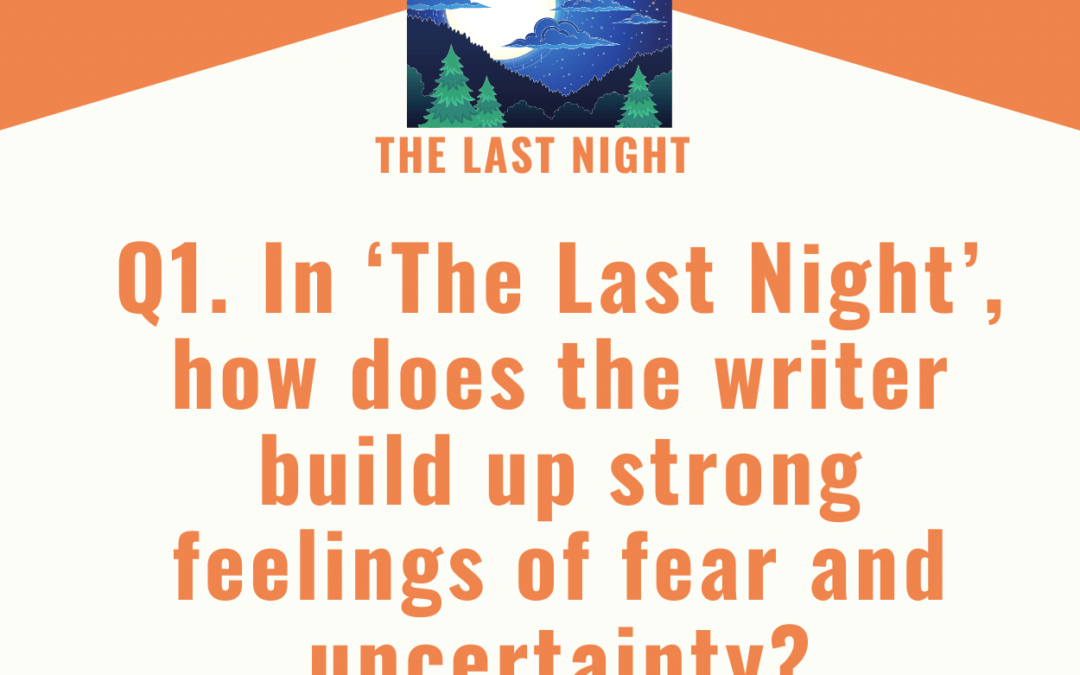Edexcel English IGCSE: The Last Night by Charlotte Gray
Q1. In ‘The Last Night’, how does the writer build up strong feelings of fear and uncertainty?
You should write about:
- how the adult deportees respond;
- what the children do and think;
- what the other people do;
- the use of language.
Refer closely to the text in your answer, and use brief quotations.
Edexcel English IGCSE Model Essay by an Expert
‘The Last Night’ describes the experiences of deportees waiting to be taken to a concentration camp: that is, waiting to be taken to their deaths. Through the thoughts and actions of the people described, Faulks captures the fear and uncertainty of this agonising wait.
The adult deportees have the most awareness of the fate that awaits them, and therefore they experience fear and desperation. They “sat slumped” against the walls, suggesting depression and hopelessness. The adults are “wakeful”, in contrast to the sleeping children; this poignantly displays the adults’ knowledge of the terrible things ahead, contrasting the children’s innocence. When they hear the buses arrive, there is a “quickening of muscle and nerve”; this is an unanimous physical reaction of fear, as they know that these buses will transport them to the concentration camp. The familiarity of the sound – a “homely thudding” – contributes to the sense of fear and uncertainty, through the sinister contrast between the homeliness of the sound and the terror that it now induces.
The children are less aware of the severity of the situation, but nevertheless fearful of their strange circumstances. Unlike the adults, who remain relatively composed due to their knowledge of the futility of resistance, the children react fearfully to the request to board the buses. A particular powerful image is: “In the filthy straw they dug in their heels and screamed”. By starting this sentence with the image of the straw, Faulks shows that despite the disgusting environment, they are determined to stay there as they have a sense that they are being taken somewhere worse. Andre, however, is touchingly obedient, bringing his brother to their bus when their names are called. His fear is evident in his determination to remain close to his brother, emphasised by the alliteration in the phrase, “He held on hard to Jacob”.
The actions of other people also reveal the terrifying nature of the deportees’ fate. They are treated with kindness and sympathy by others, such as the people who come with postcards, sandwiches and water. These acts of kindness are ominous, as they suggest that the deportees are being treated well on their “last night” on Earth. A more honest emotional reaction comes from the “women wailing” as they watch their children board the buses. The metaphorical language in the “shower of food” shows the women’s desperation to give their children a final lifeline, although they only have “scraps” to give. A mother stares with “terrible ferocity” at her child; her desperation to remember her child is so strong that it could be interpreted as almost violent.
The fear experienced by the adult and children deportees is portrayed to the reader through descriptions of their emotional reactions. The actions of others show that the deportees are right to be fearful.



